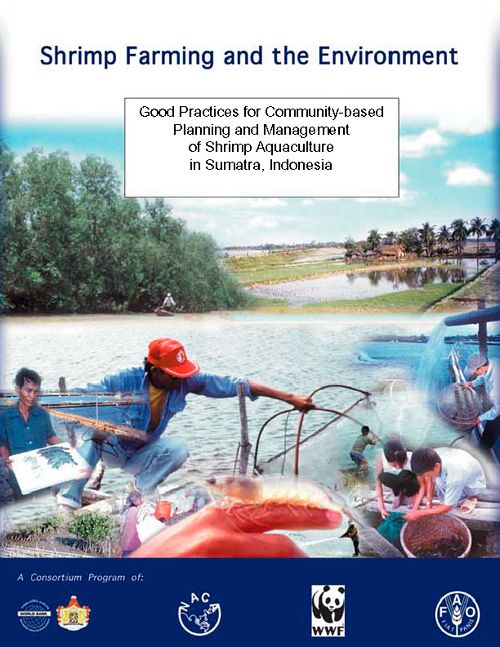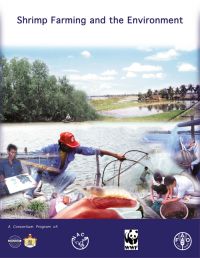Good practices for community-based planning and management of shrimp aquaculture in Sumatra, Indonesia
15 August 2005 | James Tobey, Hermawati Poespitasari and Budy Wiryawan | 1346 Downloads | .pdf | 954.39 KB | Better management practices, Indonesia, Livelihoods, gender and social issues, Shrimp, Environment and Sustainability
The case study for this report was conducted in the coastal village, Pematang Pasir in Lampung Province, Sumatra, Indonesia. Pematang Pasir hosts a pilot project promoting environmentally and responsible shrimp aquaculture implemented by the Indonesian Coastal Resources Management Project (Proyek Pesisir). Most of the shrimp farming techniques in Pematang Pasir are either semi-intensive or traditional extensive small-scale farms, with 10% of the production coming from the extensive systems. The hatcheries in the area are typically small ‘backyard’ hatcheries with a total production of around 190 million PL12 per month.
This paper describes the lessons learned to date in Pematang Pasir and offers strategies and tools of community-based coastal resource management. The lessons learnt are based on findings from Pematang Pasir but can be used in a broader perspective as more general guidelines for community-based and participatory development of shrimp aquaculture in marginalised coastal areas.
The findings are not only based on natural and physical conditions but also on socio-economic aspects and impacts for the individual farmer and the whole community. The chances for sustainable development of shrimp aquaculture are connected to the communities’ involvement in the planning. The more important shrimp culture is to the community, the more interested and committed it will likely be in adopting better practices. The management and the planning should invole stakeholders from NGO’s as well as from the different governmental levels to ensure a good development. Also inputs from external sources are important since the technical knowledge can be limited in the more remote areas.
Copyright, all rights reserved.

